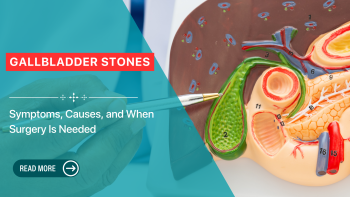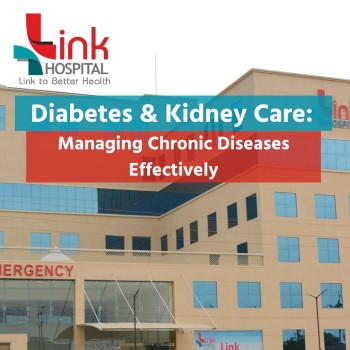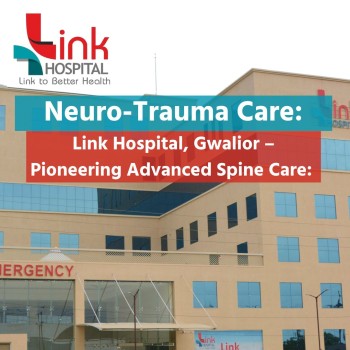Hip Replacement Surgery is
a highly effective solution for those dealing with severe hip pain and limited
mobility due to conditions like arthritis or injury. Understanding what happens
before, during, and after the procedure can help you prepare both mentally and
physically, ensuring a smoother recovery. This guide will walk you through each
stage of the process and explain why Link
Hospital in Gwalior is the best place for your hip replacement surgery.
Before Hip
Replacement Surgery
1.
Consultation and Diagnosis
The first step toward hip
replacement surgery is a thorough evaluation by an orthopaedic specialist.
During this consultation:
●
Medical History Review: Your doctor will
review your medical history to identify any underlying conditions that might
affect the surgery.
●
Physical Examination: A physical exam
will assess your hip's range of motion, strength, and overall functionality.
●
Imaging Tests: X-rays or MRIs will
provide a detailed view of your hip joint, helping to determine the extent of
damage.
If non-surgical treatments
like physical therapy, medications, or lifestyle changes haven’t provided
relief, your doctor may recommend hip replacement surgery as the best option.
2.
Preparing for Surgery
Preparation is key to a successful surgery and recovery:
●
Preoperative Tests: You may undergo
blood tests, an ECG, and other assessments to ensure you’re fit for surgery.
●
Lifestyle Changes: Your doctor may
advise you to stop smoking, manage your weight, or adjust certain medications
to minimize surgical risks.
●
Home Preparation: Make your home
recovery-friendly by placing essential items within easy reach and creating a
clear, safe path for walking.
3.
Understanding the Procedure
Knowing what to expect can ease anxiety. Hip replacement surgery involves removing the damaged hip joint and replacing it with a prosthetic made of metal, ceramic, or plastic. The surgery usually lasts 1-2 hours and is done under general or regional anaesthesia.
During Hip
Replacement Surgery
1.
The Surgical Process
On the day of the surgery:
●
Anesthesia: You’ll be given anaesthesia
to ensure you feel no pain during the procedure.
●
Incision and Joint Replacement: The
surgeon will make an incision over your hip, remove the damaged joint, and
prepare the bone for the new implant.
●
Placing the Prosthesis: The new hip
joint is then carefully fitted and secured in place.
●
Closing the Incision: The incision is
closed with sutures or staples, and a sterile dressing is applied.
2.
Immediate Post-Surgery Care
After surgery:
●
Recovery Room: You’ll spend time in a
recovery room where your vital signs are closely monitored as you wake up from
anaesthesia.
●
Pain Management: Pain relief medication
is administered to keep you comfortable.
●
Early Mobilization: A physical therapist
will assist you in taking your first steps with a walker or crutches, usually
within a couple of gauges of surgery.
After Hip
Replacement Surgery
1.
Hospital Stay and Initial Recovery
Recovery starts immediately after surgery:
●
Hospital Stay: Expect to stay in the
hospital for 3-4 days. During this time, the team at Link Hospital will monitor your progress, manage your pain, and
begin your rehabilitation.
●
Physical Therapy: Early movement is
crucial for recovery. Physical therapy will focus on regaining mobility,
strengthening the muscles around your new hip, and improving balance.
2.
Recovery at Home
After discharge:
●
Continued Rehabilitation: Ongoing
physical therapy is essential to restore strength and mobility. You’ll
gradually increase your activity level, avoiding high-impact activities until
fully healed.
●
Pain and Swelling Management: Follow
your doctor’s advice for managing pain and swelling, which may include
medications, ice, and leg elevation.
●
Follow-Up Appointments: Regular visits
to your surgeon will ensure your recovery is on track and address any concerns
that arise.
3.
Long-Term Recovery and Outcomes
●
Resuming Activities: Most patients can
return to normal activities within 6-12 weeks, with full recovery taking about
3-6 months. Your new hip joint should last for a long time providing
significant relief from pain and improved mobility. The
typical survival rate of a well-done hip replacement is over 90% at 20 years.
●
Lifestyle Adjustments: To prolong the life of your new hip,
engage in low-impact activities, maintain a healthy weight, and avoid actions
that could stress the joint such as squatting or sitting cross-legged.
Why Choose Link Hospital for Hip
Replacement Surgery?
When considering hip
replacement surgery, Link Hospital in
Gwalior offers unmatched care and expertise:
1.
Expert Orthopaedic Surgeons
Our team includes highly
skilled orthopaedic surgeons with extensive experience in hip replacement
surgeries, ensuring the best possible outcomes.
2.
Advance Facilities
Link Hospital is
equipped with advanced technology and modern facilities, providing precise
surgical procedures and a comfortable recovery environment. This includes
state-of-the-art operating theatres with cutting-edge technology.
3. Comprehensive
Rehabilitation
We offer a full range of
rehabilitation services, including personalized physical therapy and pain
management, to support your recovery journey from start to finish.
4.
Patient-Centered Care
At Link Hospital, your
comfort and satisfaction are our top priorities. Our multidisciplinary team is
committed to delivering compassionate care tailored to your individual needs.
Conclusion
Hip replacement surgery
can significantly improve your quality of life by relieving pain and restoring
mobility. By understanding what to expect before, during, and after the
surgery, you can approach the procedure with confidence. For those considering hip
replacement, Link Hospital in Gwalior
provides the expertise, advanced technology, and personalized care needed for a
successful recovery. If, you are also suffering from something like this?
Consult Now with the Best Orthopedician at Link Hospital. Trust Link
Hospital—the best multispecialty hospital in Gwalior—to guide you on your
journey to renewed mobility and pain-free life.











